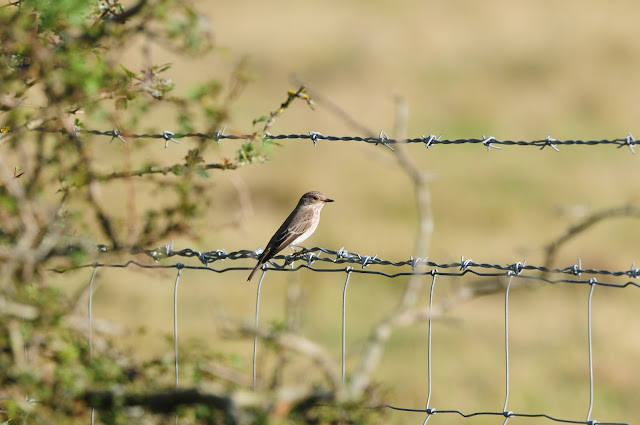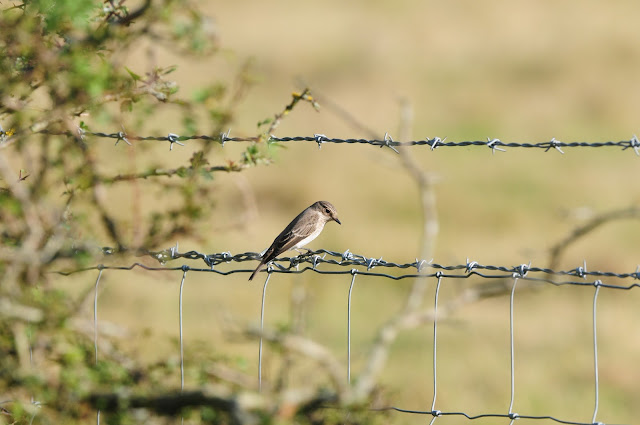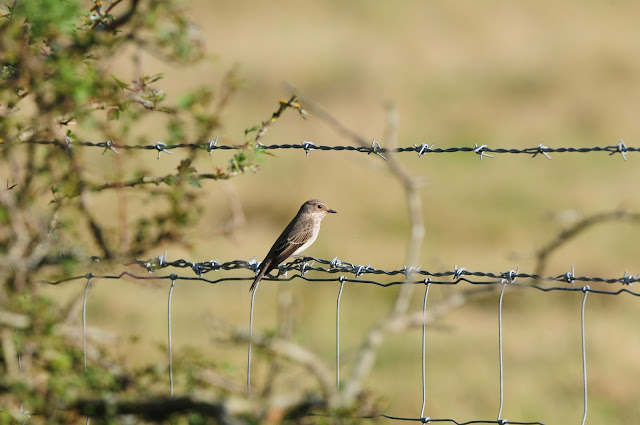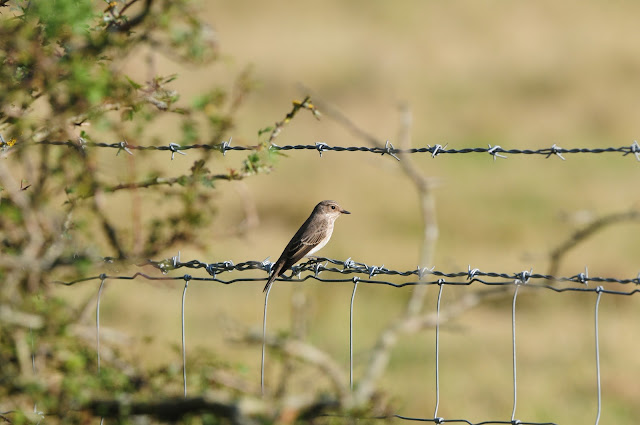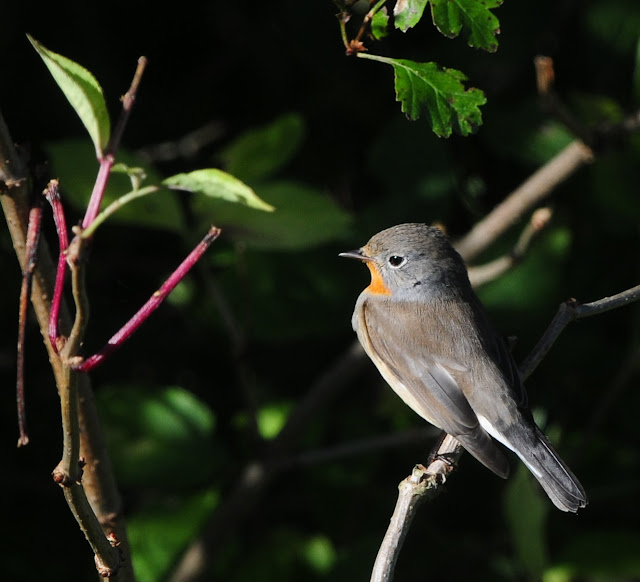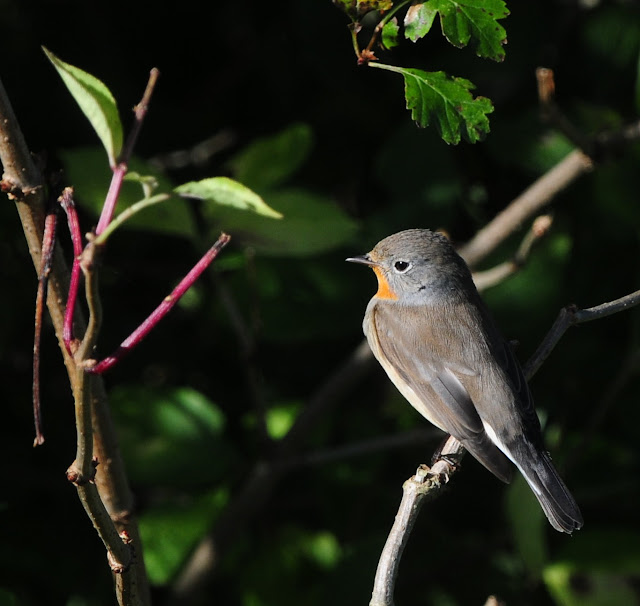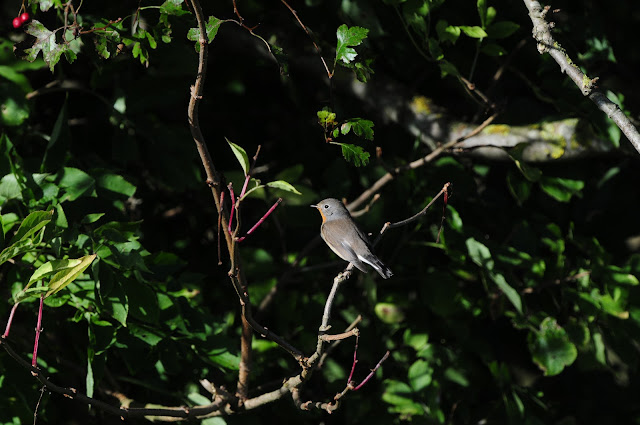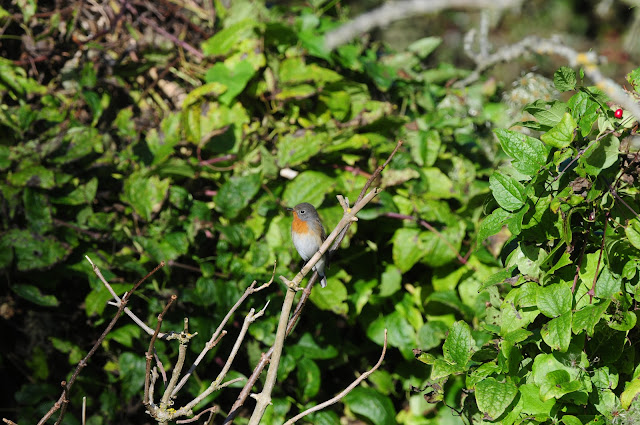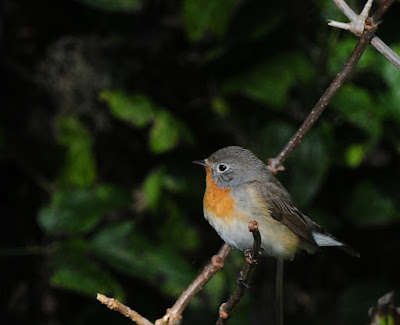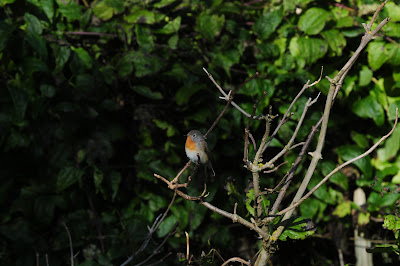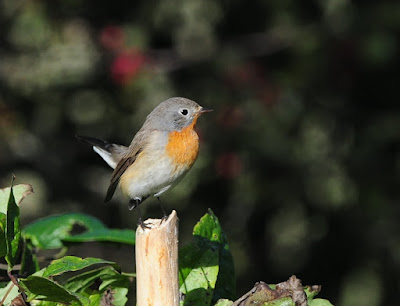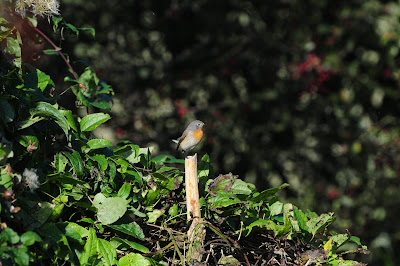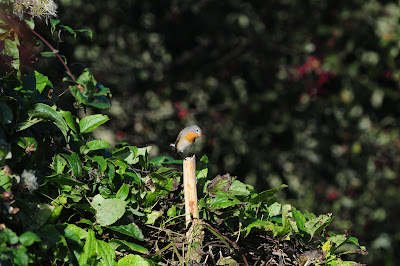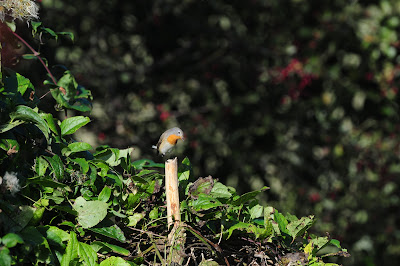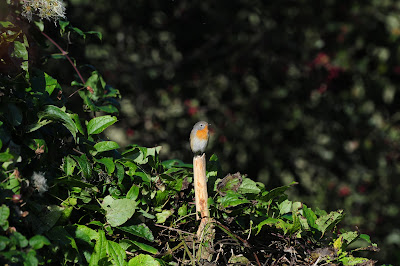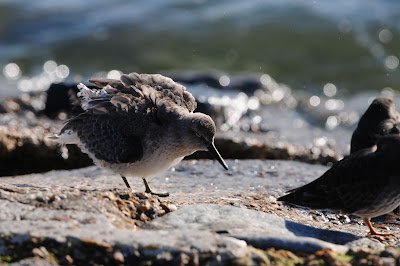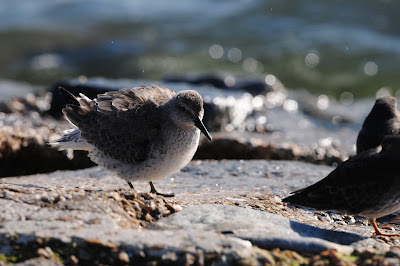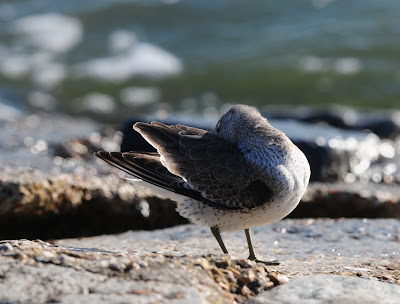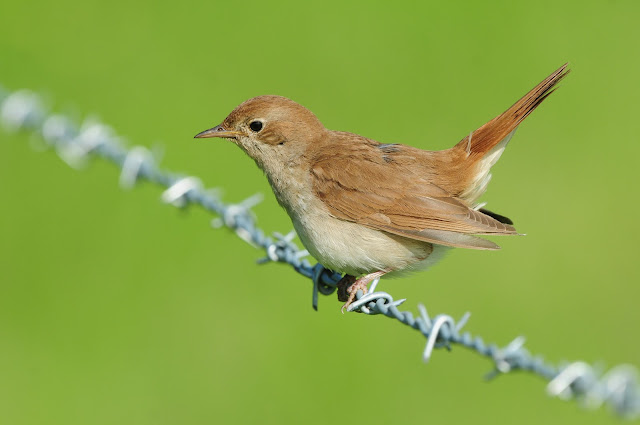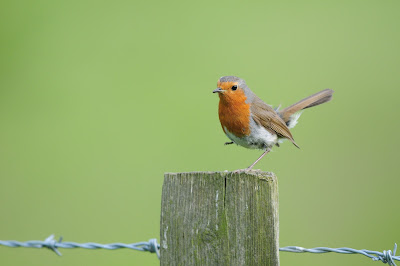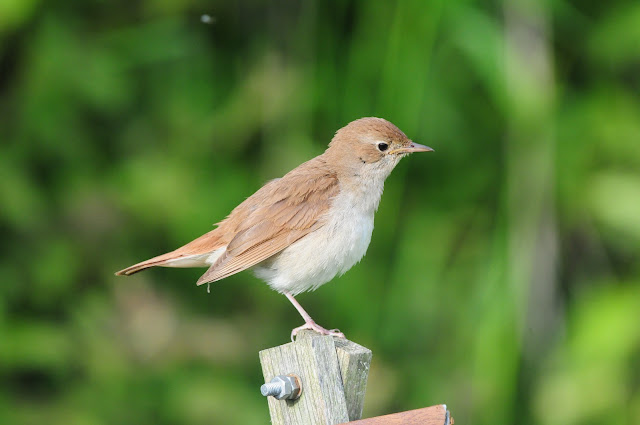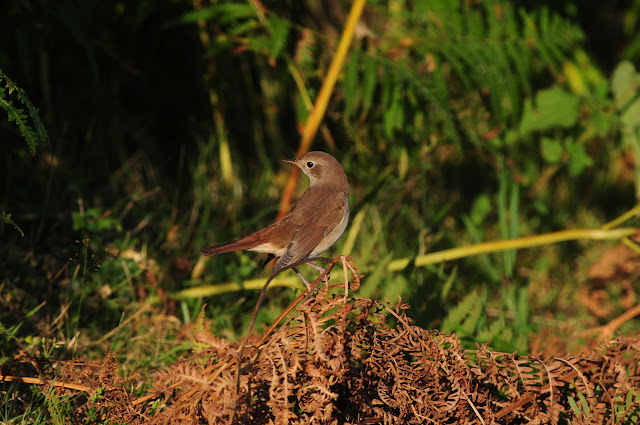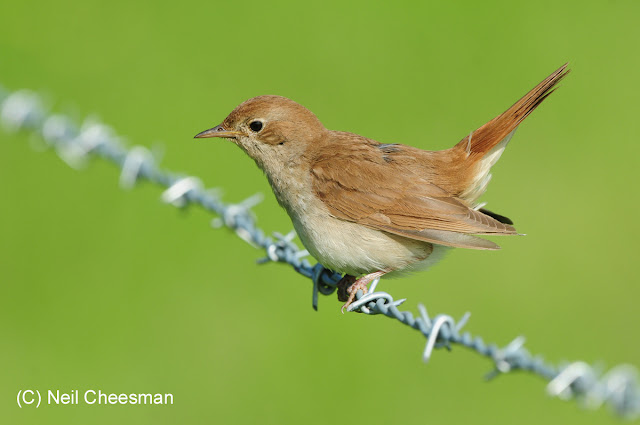It's managed by the Royal Society for the Protection of Birds (RSPB), the largest conservation charity in Europe.
This reserve boasts a rich tapestry of habitats, encompassing wetlands, woodlands, and heathlands.
This variety entices a fascinating array of wildlife, making it a paradise for nature enthusiasts and birdwatchers alike.
Some of the birds you can expect to see at Pulborough Brooks include:
Barn owls
Teal
Nightingales
Wigeons
Wrens
Green Woodpeckers
Great Spotted Woodpeckers
Kestrel
Many more!
The reserve is particularly captivating in spring when the air reverberates with the melodious tunes of warblers and the renowned nightingale.
Additionally, during this season, the wetlands come alive with captivating aerial displays of lapwings.
Pulborough Brooks offers a haven for visitors of all ages. The well-maintained trails, some lined with hedges, meander through the reserve, leading you to viewing platforms and bird hides. RSPB volunteers are frequently stationed at these spots, eager to assist you in spotting wildlife and providing interesting ecological knowledge.
The visitor center is open daily, and the nature trail is accessible from sunrise to sunset. The reserve organizes guided walks, nature courses, and introductory events throughout the year, making it an ideal destination for those wanting to broaden their knowledge of the natural world.
Whether you're a seasoned birdwatcher or simply seeking a tranquil escape in nature, Pulborough Brooks Nature Reserve is certain to leave you spellbound.
28th April 2014 17:53
3rd September 2014 at 18:43
14th September 2014 at 17:07 > 17:10
30th September 2014 at 16:19
30th September 2014 at 17:15
Beachy Head's wildlife is a two-fold wonder: resident species that call it home and migratory visitors that use its strategic location for epic journeys.
Resident Wildlife:
Land Birds: The grassy slopes and cliffs provide nesting grounds for common gulls like black-headed gulls and kittiwakes. You might also spot carrion crows, kestrels, skylarks, and meadow pipits. Keen observers can look for rarer residents like short-eared owls and stonechats.
Reptiles: Keep an eye out for adders (venomous, so be cautious!), grass snakes, and slow worms basking on the slopes.
Migrant Marvels:
Beachy Head's location on the English Channel makes it a prime spot for bird migration. During spring and fall, the cliffs act like a funnel, attracting a stunning variety of birds on their long journeys. Here are some highlights:
Songbirds: Warblers, chats, and flycatchers are frequent visitors, stopping to refuel before continuing their journeys. Look for yellow-browed warblers, rarer finds like Pallas's warblers, and even the occasional red-backed shrike or ortolan bunting.
Raptors: Soar with the seasons! Buzzards, marsh harriers, hobbies, and even ospreys might grace you with their presence during migration.
Where to Look for Migrants:
The Cliffs: Naturally, the cliffs offer the best vantage point for spotting migrants.
Volunteer Watchpoints: Birdwatching enthusiasts often set up watchpoints during migration seasons. Look for signs or ask at the Beachy Head Countryside Centre for their locations.
Tips for Spotting Migrants:
Timing is Key: Spring (March-May) and autumn (August-November) are peak migration periods.
Bring Binoculars: A good pair of binoculars is essential for identifying birds at a distance.
Dress for the Weather: Coastal winds can be strong, so pack appropriate clothing.
Be Patient: Birdwatching requires patience. Settle in, scan the skies, and enjoy the beautiful scenery while you wait.
With a bit of planning and a dash of luck, you might witness some incredible avian spectacles during your visit to Beachy Head!
27th October 2014 at 13:33 >>>
'The Burr' - West Burton is a spring-line hamlet in the Parish of Bury, one mile NW of Bury village (and one mile SE of Bignor)
5th December 2014 at 15:20
5th December 2014 at 16:14
Southsea Castle is a historic artillery fort located on Portsea Island, Hampshire, England. Built by King Henry VIII in 1544, it was part of the King's Device programme, a series of fortifications constructed along the English coast to defend against potential invasion threats from France and the Holy Roman Empire.
History:
Built in the mid-16th century as part of a coastal defence program.
Early example of the trace italienne style, a revolutionary fortification design from continental Europe.
Played a role in the English Civil War, being captured for the only time in its history by Parliamentarian forces.
Throughout the centuries, the castle's defences were constantly improved to counter evolving threats.
What to See and Do:
Explore the well-preserved keep, offering panoramic views of the Solent and the Isle of Wight.
Learn about the castle's fascinating history through exhibits and displays.
Take a walk along the ramparts, imagining life as a defender in centuries past.
Enjoy a bite to eat or refreshments at The Courtyard cafe (open year-round).
Visitor Information:
Open as a free historical attraction, Tuesdays to Sundays between April and October.
Access to the keep and ramparts involves stairs and may not be suitable for everyone.
Check the official website (https://southseacastle.co.uk/) for the latest opening times and any special events.
Interesting Fact:
Shortly after Southsea Castle's completion, King Henry VIII's flagship, the Mary Rose, tragically sank just off the coast of the castle. The wreck remained undiscovered for centuries and is now a major tourist attraction itself.
8th December 2014 12:59
8th December 2014 at 14:15
8th December 2014 at 14:58
8th December 2014 at 15:03
11th January 2015 at 15:39
5th June 2014 at 19:26
6th June 2014 18:49
8th June 2014 at 20:08
21st July 2014 at 18:34
7th August 2014 at 18:41







